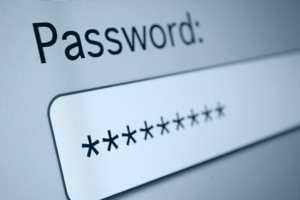When you create an account online, you need a password to keep your information safe. A password is like a key that locks and unlocks your account. It's important to have a strong password so that other people can't easily guess it and access your account.
A weak password is one that is easy for someone else to guess or figure out. Examples of weak passwords are:
These passwords are easy to guess because they are simple and common. Avoid using weak passwords to protect your accounts.
A strong password is one that is difficult for someone else to guess or figure out. A strong password usually:
By using a combination of these elements, you can create a strong password that is difficult for others to guess.
Let's look at how the length of a password affects the chances of it being hacked. We'll use numbers as an example:
1-digit password
There are 10 possible passwords (0-9). For example, '5'. It's very easy to guess, like finding a book in a small box.
2-digit password
There are 100 possible passwords (00-99). For example, '25'. It's still easy to guess, like finding a book in a room.
3-digit password
There are 1,000 possible passwords (000-999). For example, '123'. It's harder to guess, but not strong enough, like finding a book in a house.
As you can see, the longer the password, the more difficult it is for someone to guess it.
Let's compare different types of passwords and see how adding more characters can make them stronger. We will use passwords of length 8 for each example and say we can take 1,000 guesses per second (a computer could easily do this!).
Take a look at the table below:
| Password with | Example | Description | How Long to Guess |
|---|---|---|---|
| Only numbers (0-9) | 12345678 | There are 10 possible characters (0-9) and 8 positions, so there are 10^8 (100,000,000) possible combinations. | 1.2 days |
| Numbers and lowercase letters (a-z) | a1b2c3d4 | There are 36 possible characters (0-9, a-z) and 8 positions, so there are 36^8 (2,821,109,907,456) possible combinations. | 89.5 years |
| Numbers, lowercase and uppercase letters (A-Z, a-z) | A1b2C3d4 | There are 62 possible characters (0-9, A-Z, a-z) and 8 positions, so there are 62^8 (218,340,105,584,896) possible combinations. | 6,918,651 years |
| Numbers, lowercase and uppercase letters, and special characters | A1b@C3#4 | There are 72 possible characters (0-9, A-Z, a-z, special characters) and 8 positions, so there are 72^8 (722,204,136,308,736) possible combinations. | 22,895,746 years |
By adding more types of characters to your password, you make it even more difficult for someone to guess it.


